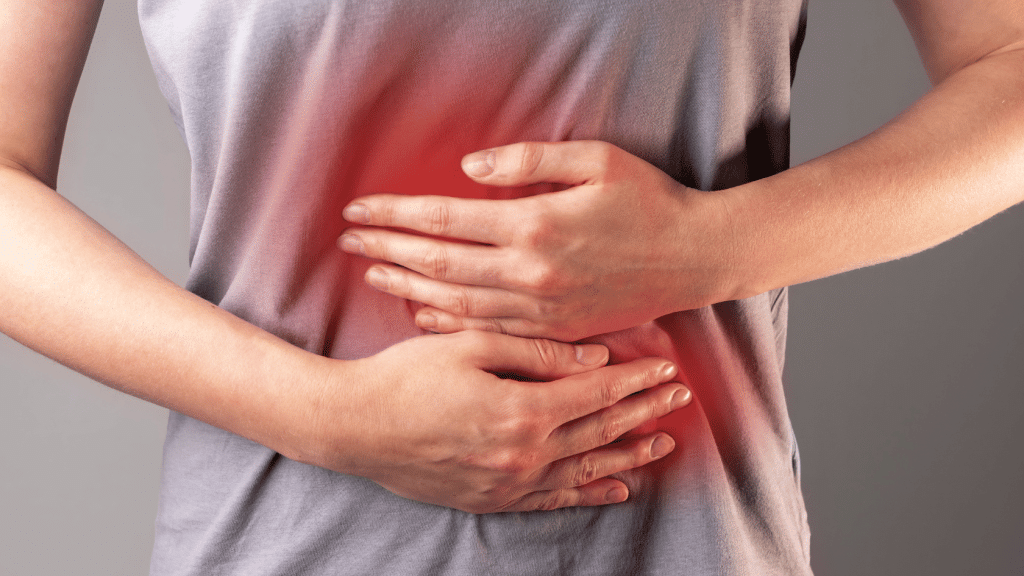Inflammation of the stomach lining, known medically as gastritis, causes gastrointestinal distress and, if unchecked, more serious problems. Managing and preventing this prevalent ailment requires an understanding of its causes, signs, and treatments. Solutions like online doctor consultation are now more accessible than ever, offering immediate relief and guidance.
Understanding What Causes Gastritis
The precise origins of this disease are multifaceted, with various factors contributing to this condition.
-
Infections
Bacterial infections, particularly Helicobacter pylori (H. pylori), are some common triggers. These bacteria can weaken the stomach’s protective mucus lining, making it more susceptible to damage from stomach acids.
-
Lifestyle Habits
A lifestyle that includes excessive consumption of alcohol and tobacco, along with a preference for spicy, acidic, or fried foods, can irritate or inflame the stomach lining.
-
Chronic Usage of Medications
Regular use of NSAIDs (Nonsteroidal Anti-Inflammatory Drugs) and other pain relievers can cause this condition. These medications can disrupt the protective layer of the stomach, leading to inflammation.
-
Stress and Other Illnesses
High levels of stress, either from work, personal life, or underlying health conditions like Crohn’s disease, can lead to acute or chronic gastritis. Chronic illnesses may require ongoing medical management and consultation with healthcare providers to minimize their impact on the stomach lining.
Age Factor
Physiological changes as people age may increase their susceptibility to several diseases, including gastritis. Stomach mucosal thinning, a natural defense mechanism against the corrosive effects of stomach acid, is a major contributor. This thinning can result in heightened sensitivity to irritants like alcohol, spicy foods, or certain medications. Since the elderly are already at a higher risk of getting the condition and these phenomena may play a major role in the disease’s progression.
Identifying the Signs and Symptoms
-
Abdominal Pain:
Often described as a burning or gnawing sensation in the upper abdomen, this pain may be mild or severe and may worsen or improve with eating. It can also persist for hours after meals.
-
Loss of Appetite:
An unexplained aversion to food or feeling full quickly can be a sign of gastritis. This might lead to unintentional weight loss if persistent, which requires prompt evaluation.
-
Indigestion:
Symptoms like bloating, gas, or a sensation of fullness, even after a small meal, are common signs of it. These symptoms can interfere with daily life and should be addressed for relief.
-
Nausea or Vomiting:
Particularly after meals, persistent nausea or vomiting may indicate irritation or inflammation in the stomach lining, necessitating timely medical evaluation for proper diagnosis and treatment.
Gastritis Diagnosis Essentials
Accurate diagnosis of this condition is vital. Whether through face-to-face or online gastroenterologist consultation, healthcare providers may require a detailed patient history, physical examination, blood tests, stool tests, endoscopy, or breath tests. This comprehensive evaluation identifies the underlying cause and guides appropriate treatment. Using online platforms to find a GP near me, such as Consultdoc, can facilitate timely access to care.
Options for Treatment
-
Prescription Medications:
Depending on the cause, antibiotics or acid-reducing medications might be required. Long-term medication management might be necessary for chronic cases. Regular follow-ups through our online GP services ensure the right course and duration of treatment.
-
Lifestyle Adjustments:
Fundamental changes in diet, alcohol consumption, and stress management can be highly effective in both treatment and prevention. Incorporating mindfulness practices and seeking professional nutritional guidance can further enhance recovery.
-
Physical Therapy and Stress Reduction Techniques:
Treatments like herbal remedies or acupuncture might provide relief for some individuals. Integrating physical therapy exercises that focus on abdominal relaxation and adopting stress reduction techniques such as meditation or deep breathing exercises can help in managing symptoms.
-
Surgical Interventions:
In rare and severe cases where gastritis leads to complications like ulcers or significant bleeding, surgical procedures may be necessary. This could include repairing a bleeding vessel or removing affected tissue, always guided by specialized medical professionals.
Prevention and Long-Term Management
-
Healthy Eating Habits:
Including a balanced diet rich in fruits, vegetables, and whole grains, and avoiding irritants like spicy or fried foods, can help in preventing it. Eat smaller, more frequent meals. Large meals overly stretch the stomach and increase acid production.
-
Avoiding Harmful Substances:
Reducing or eliminating alcohol and tobacco use protects the stomach lining. Avoid very hot or very cold foods and beverages. Extreme temperatures can irritate the stomach.
-
Manage stress:
Chronic stress can increase stomach acid production and inflammation. Managing stress is essential for digestive health. Incorporating mindfulness exercises into your daily routine, such as deep breathing and progressive muscle relaxation, can help reduce stress and improve digestive wellness.
-
Stay hydrated:
Drink plenty of water and limit dehydrating drinks like coffee and alcohol. Proper hydration is vital for optimal digestive function. Ensuring you drink an adequate amount of water daily promotes a healthy gut and overall well-being.
-
Regular Medical Check-ups:
Regular visits to healthcare providers, either through local GPs or online GP registration on Consultdoc, enable monitoring and early intervention, ensuring long-term health and well-being.
Conclusion
Gastritis is a prevalent but manageable condition. Understanding its causes, recognizing symptoms, and seeking proper diagnosis and treatment are essential steps in handling it effectively. Find a GP near me through Consultdoc platform and embark on a journey towards health and wellness. Engaging in preventative measures, embracing healthy eating habits, and being mindful of medication usage can further empower individuals to take control of their digestive condition.
